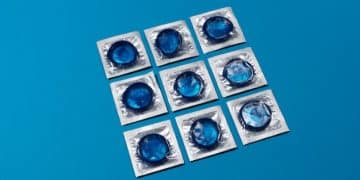Detox Diets: Safe & Effective? The Truth Revealed

Detox diets, often marketed as methods for cleansing the body of toxins and promoting rapid weight loss, generally lack scientific evidence to support their efficacy or safety and can pose significant health risks if not approached with extreme caution and professional guidance.
In the vast landscape of health and wellness, few topics generate as much buzz and controversy as detox diets. Promising to purify your body and jumpstart weight loss, these regimens flood social media and health store shelves. But beyond the enticing claims, a crucial question remains: The Truth About Detox Diets: Are They Safe and Effective? This article delves into the science, debunks myths, and provides a balanced perspective.
Understanding the Detox Diet Phenomenon
Detox diets are not a new invention; variations have existed for centuries, often rooted in traditional or alternative medicine practices. However, their modern resurgence, fueled by celebrity endorsements and aggressive marketing, has propelled them into mainstream consciousness. These diets typically involve restrictive eating patterns, specific juices, supplements, and even colon cleanses, all purported to rid the body of harmful “toxins.”
The appeal is undeniable: in a world grappling with pollution, processed foods, and stress, the idea of a quick, simple solution to reset and purify our systems is highly attractive. Many individuals report feeling lighter, more energetic, and more focused after a detox, often attributing these sensations to the cleansing process. This anecdotal evidence, while compelling to the individual, often relies more on the psychological effects of a rigid routine and the placebo effect than on physiological detoxification.
The Concept of “Toxins” in Detox Diets
One of the foundational yet often vaguely defined concepts in the detox diet narrative is that of “toxins.” Proponents suggest that environmental pollutants, pesticides, food additives, and metabolic byproducts accumulate in the body, leading to fatigue, weight gain, skin issues, and chronic diseases. The detox diet, they claim, then flushes these harmful substances out.
- Undefined Substances: Rarely do detox diet advocates specify which “toxins” are being targeted or how their specific regimen eliminates them.
- Body’s Natural Mechanisms: The human body possesses highly efficient and sophisticated mechanisms for detoxifying itself, primarily through the liver, kidneys, lungs, and skin.
- Scientific Scrutiny: Mainstream medical science generally does not support the notion that toxins accumulate to harmful levels in healthy individuals or that specific diets are required to remove them.
The lack of clear scientific definitions and measurable outcomes for “toxin removal” is a significant red flag when evaluating the legitimacy of detox claims. Without specifying the “toxins” and demonstrating their removal, the marketing claims remain unsubstantiated and anecdotal.
Types of Detox Diets
The term “detox diet” encompasses a wide range of approaches, varying significantly in their restrictiveness and duration. Some involve complete fasting, while others permit only specific liquids or a limited selection of organic foods. Understanding these variations is crucial for a comprehensive assessment.
Common types include juice cleanses, where participants consume only raw fruit and vegetable juices for several days; fasting, which may be partial or complete; and specific food elimination diets that cut out common allergens or inflammatory foods. Some programs also incorporate herbal supplements, laxatives, diuretics, and colonic irrigation, each with its own set of potential benefits and risks.
The allure of these varied methods is often tied to testimonials of improved digestion, clearer skin, and increased energy. However, these effects could often be attributed to the elimination of unhealthy habits like excessive sugar, processed foods, or alcohol, rather than a specific “detox” process. Many participants simply switch to a healthier, albeit restrictive, eating pattern temporarily, leading to perceived benefits.
Ultimately, the popularity of detox diets highlights a universal desire for improved health and well-being. However, distinguishing between genuine physiological benefits and marketing hype requires a critical and evidence-based approach, which we will explore further.
The Scientific Perspective: Fact vs. Fiction
When scrutinizing detox diets, it’s essential to separate scientific evidence from the often-compelling narratives found in popular culture. The human body is equipped with an incredibly sophisticated detoxification system, capable of neutralizing and eliminating a vast array of substances without external intervention.
The liver, for instance, plays a central role in metabolizing drugs, alcohol, and various toxins, converting them into less harmful compounds that can be excreted. The kidneys filter blood, removing waste products via urine. The lungs expel gaseous waste, and the intestines eliminate toxins through stool. These organs work in concert, constantly maintaining the body’s internal balance.
Do Detox Diets Have Scientific Backing?
A thorough review of scientific literature reveals a significant lack of robust, peer-reviewed studies supporting the efficacy of most commercial detox diets. Many studies cited by proponents are small-scale, funded by specific product manufacturers, or lack the rigorous methodology required for strong evidence.
- Limited Evidence: Few, if any, high-quality human trials demonstrate that detox diets effectively remove specific toxins or provide lasting health benefits beyond those achieved by a balanced diet.
- Methodological Flaws: Studies are often poorly designed, lacking control groups, blinding, and sufficient sample sizes, making it difficult to draw definitive conclusions.
- Focus on Symptoms, Not Underlying Causes: Many detoxes address symptoms (e.g., fatigue, bloating) without diagnosing or treating the underlying causes, which could be anything from poor dietary habits to chronic medical conditions.
The scientific community largely agrees that for healthy individuals, commercial detox diets are unnecessary. A balanced diet rich in whole foods, adequate hydration, regular exercise, and sufficient sleep are the true pillars of natural detoxification and overall well-being. Focusing on these fundamentals provides far greater and more sustainable benefits than any short-term “cleanse.”
The Placebo Effect and Perceived Benefits
Many individuals report feeling better, having more energy, or losing weight after a detox diet. While these experiences are real, they are often attributable to factors other than actual detoxification. The placebo effect, where a person experiences a perceived benefit due to their belief in the treatment, plays a significant role.
Moreover, the “detox” often involves eliminating highly processed foods, sugary drinks, alcohol, and caffeine, which are common culprits for low energy, bloating, and poor digestion. By removing these, individuals naturally feel better, irrespective of any specific “detox” ingredient or process. The temporary weight loss experienced is almost always due to fluid loss and caloric restriction, not fat loss, and is often quickly regained.
The discipline and commitment required for a detox diet can also instill a sense of accomplishment and improved self-care, contributing to enhanced mood and perceived health. It’s crucial to acknowledge these psychological and behavioral changes when assessing the reported benefits, rather than immediately attributing them to a magical cleansing process.

Safety Concerns and Potential Risks
While the marketing of detox diets often emphasizes their “natural” and “harmless” qualities, many of these regimens carry significant safety concerns and potential health risks. Restrictive eating patterns, combined with the use of unproven supplements or procedures, can lead to adverse effects, especially for vulnerable populations.
Nutrient Deficiencies and Malnutrition
Many detox diets drastically limit caloric intake and variety of foods, leading to inadequate consumption of essential macronutrients (proteins, fats, carbohydrates) and micronutrients (vitamins, minerals). Prolonged restriction can result in:
- Fatigue and Weakness: Insufficient calories and carbohydrates mean less energy for daily activities and bodily functions.
- Muscle Loss: Lack of protein can lead to the breakdown of muscle tissue, which is counterproductive for metabolism and overall health.
- Electrolyte Imbalances: Restrictive diets and excessive fluid loss (from diuretics or laxatives) can disrupt the body’s electrolyte balance, leading to heart arrhythmias or kidney problems.
- Compromised Immune Function: Nutrient deficiencies can weaken the immune system, making the body more susceptible to infections.
This nutritional inadequacy can be particularly dangerous for individuals with pre-existing conditions, pregnant or breastfeeding women, children, and the elderly. The short-term nature of many detoxes might mitigate severe deficiencies, but even a few days of extreme restriction can disrupt metabolic processes.
Adverse Side Effects and Health Risks
Beyond nutritional concerns, various elements of detox diets can cause uncomfortable or even dangerous side effects. Common complaints include:
- Headaches, Nausea, and Dizziness: Often due to low blood sugar from calorie restriction, or withdrawal from caffeine/sugar.
- Diarrhea and Dehydration: Caused by laxatives, colon cleanses, or excessive consumption of certain juices, leading to electrolyte imbalances.
- Interactions with Medications: Some detox supplements, particularly herbal remedies, can interact negatively with prescription drugs, affecting their absorption or efficacy.
- Kidney and Liver Strain: Overuse of diuretics or supplements can put undue stress on these organs, particularly if they are already compromised.
- Eating Disorders: The extreme nature of detox diets can trigger or exacerbate disordered eating patterns, fostering an unhealthy relationship with food and body image.
The lack of regulation in the supplement industry is another major concern. Many “detox” products are not subject to stringent testing, meaning their ingredients, dosages, and potential contaminants are often unknown. This makes it difficult for consumers to assess their safety or effectiveness, adding an extra layer of risk to these dietary practices.
Who Should Avoid Detox Diets?
Given the potential risks, certain groups of people should unequivocally avoid detox diets, and anyone considering one should consult a healthcare professional. This includes, but is not limited to, individuals who are:
- Pregnant or breastfeeding.
- Children or adolescents.
- Elderly.
- Diabetic or have blood sugar regulation issues.
- Undergoing cancer treatment or remission.
- Have kidney, liver, or heart disease.
- Have a history of eating disorders.
- Taking any prescription medications.
For most healthy individuals, the body’s natural detoxification processes are sufficient. Rather than resorting to extreme measures, a sustainable approach focused on nutrient-dense foods, adequate hydration, and a healthy lifestyle is not only safer but far more effective in promoting long-term well-being.
Effective and Sustainable Alternatives to Detox Diets
Instead of pursuing short-term, potentially harmful detox diets, a sustainable approach to health and well-being focuses on consistent, evidence-based practices that support the body’s natural detoxification processes and overall vitality. These methods are not only safer but also provide lasting benefits without the risks associated with extreme restrictions.
Embracing a Whole-Food, Balanced Diet
The most powerful “detox” strategy is adopting a long-term, balanced eating pattern centered around whole, unprocessed foods. This approach naturally supports the body’s organs of detoxification and provides essential nutrients for optimal health.
- Fruits and Vegetables: Rich in antioxidants, vitamins, and fiber, they support liver function and digestive health. Think leafy greens, berries, cruciferous vegetables like broccoli and cauliflower.
- Lean Proteins: Essential for building and repairing tissues, and for the enzymes involved in detoxification. Examples include fish, poultry, beans, lentils, and nuts.
- Whole Grains: Provide fiber, which aids in bowel regularity and the elimination of waste products. Oats, quinoa, and brown rice are excellent choices.
- Healthy Fats: Crucial for cell function and nutrient absorption. Avocados, nuts, seeds, and olive oil are beneficial.
Reducing or eliminating highly processed foods, excessive sugar, unhealthy fats, and alcohol significantly lightens the load on your body’s natural detoxification pathways. This isn’t a temporary cleanse but a fundamental shift towards sustainable eating habits that promote health from within.
Hydration, Exercise, and Sleep: The True Pillars of Detox
Beyond diet, several lifestyle factors are paramount in supporting your body’s natural ability to cleanse and regenerate.
- Adequate Hydration: Water is crucial for kidney function, flushing out waste products, and maintaining cellular health. Aim for at least 8 glasses of water daily, more if you’re active.
- Regular Physical Activity: Exercise improves circulation, which helps transport nutrients and waste products more efficiently. It also promotes sweating, an additional pathway for toxin elimination. Even moderate activity like walking or cycling can make a big difference.
- Sufficient Sleep: While you sleep, your body undergoes critical repair and regeneration processes. The brain, in particular, clears out metabolic byproducts through the glymphatic system. Aim for 7-9 hours of quality sleep per night.
These practices, often overlooked in the quest for quick fixes, are the foundation of true well-being. They work synergistically to enhance your body’s inherent P processes, ensuring that it remains efficient at neutralizing and expelling unwanted substances, naturally and safely.

The Psychological Aspect: Why We Seek Detoxes
The persistent allure of detox diets goes beyond pure physiological claims; it taps into deeper psychological motivations. In a world saturated with information, often contradictory, and burdened by stressful lifestyles, the promise of a quick “reset” offers a powerful sense of control and renewal. Understanding these underlying psychological drivers is key to finding more sustainable paths to health.
Desire for a Quick Fix and Instant Gratification
Modern society often promotes instant gratification, and health is no exception. We are conditioned to seek rapid solutions for complex problems, whether it’s weight loss, fatigue, or skin issues. Detox diets, with their short durations and dramatic promises, fit perfectly into this mindset.
The idea of a “cleanse” suggests a one-time effort that can erase past indulgences and set one on a new, healthier trajectory. This appeals to a desire for immediate results, bypassing the perceived long and arduous journey of consistent healthy habits. The short-term nature also makes them feel more achievable than making permanent lifestyle changes. This perception of a quick fix, however, often leads to a cycle of restriction followed by rebound, as the underlying habits are not addressed.
Feelings of Guilt and Self-Punishment
For many, the motivation to “detox” stems from feelings of guilt over past dietary choices or a perceived lack of discipline. The restrictive nature of detox diets can sometimes serve as a form of self-punishment, a way to “atone” for overeating or unhealthy living.
This can create an unhealthy and unsustainable relationship with food, viewing certain foods as “good” and others as “bad,” leading to cycles of deprivation and bingeing. A healthier approach involves cultivating self-compassion and understanding that consistent, moderate choices are far more effective than extreme, punitive measures. Instead of seeking penance through restriction, focus on nourishing your body and building resilient habits through positive reinforcement.
The Allure of Simplicity in a Complex World
The sheer volume of health information, often conflicting, can be overwhelming. Detox diets, by prescribing a very narrow set of rules and foods, offer a comforting sense of simplicity. They eliminate the need to make complex dietary decisions, providing a clear, albeit limited, path forward.
In a world of abundant choices and confusing messages, the desire for clear-cut instructions and an escape from decision fatigue is powerful. This perceived simplicity, however, often masks a profound lack of nutritional completeness and disregards individual metabolic needs. True health literacy involves understanding the nuances of nutrition and making informed choices tailored to one’s unique body and lifestyle, rather than blindly following rigid, one-size-fits-all protocols.
Navigating Health Claims and Media Hype
The digital age has amplified health fads, making it increasingly challenging for individuals to discern credible information from marketing hype. Detox diets are often heavily promoted through social media influencers, celebrity endorsements, and emotionally charged testimonials, overshadowing scientific evidence.
Critical Thinking and Source Verification
When confronted with health claims, especially those promising dramatic or rapid results, a critical approach is crucial. Ask yourself:
- Is the claim too good to be true? If it promises a quick fix for complex health issues, it likely is.
- Is the source credible? Look for information from registered dietitians, medical doctors, and peer-reviewed scientific journals, not just personal blogs or product websites.
- Is revenue involved? Be wary of information heavily tied to product sales; the primary motive might be profit, not public health.
- Are the claims backed by robust scientific studies? Anecdotal evidence, while compelling, is not a substitute for rigorous research.
Developing skepticism towards sensationalized claims empowers you to make informed decisions about your health, recognizing the difference between genuine expertise and persuasive marketing.
The Role of Media and Social Media
Social media platforms and traditional media outlets play a dual role. While they can disseminate valuable health information, they also serve as breeding grounds for misinformation and fads. Influencers, often without formal training in nutrition or medicine, can inadvertently or intentionally promote unproven diets to their vast audiences.
The visually appealing nature of detox drinks or before-and-after photos can be incredibly persuasive, creating a false sense of efficacy. It’s essential to remember that social media often presents an idealized or incomplete picture. What works for one person or is presented as effortless may not be applicable or safe for another, especially when dealing with complex physiological processes.
Furthermore, the algorithm-driven nature of these platforms means that once you engage with detox content, you’re likely to see more of it, creating an echo chamber that reinforces unsubstantiated beliefs. Actively seeking out diverse, evidence-based sources is vital to counter this effect and form a balanced understanding of health and nutrition.
Consulting Healthcare Professionals
Given the complexities of human physiology and the potential risks associated with restrictive diets, consulting qualified healthcare professionals is paramount before embarking on any significant dietary change, especially those claiming to “detox” the body.
The Value of Expert Guidance
Working with a registered dietitian (RD) or a medical doctor provides personalized, evidence-based guidance tailored to your specific health needs and goals. Unlike online gurus or celebrity endorsements, these professionals are trained to understand the intricate workings of the human body and how different foods and nutrients impact it.
- Personalized Assessment: An RD can assess your current dietary habits, health status, and medical history to recommend a safe and effective eating plan.
- Identification of Underlying Conditions: A doctor can rule out any medical conditions that might be contributing to your symptoms (e.g., fatigue, bloating) that a detox diet would merely mask.
- Evidence-Based Recommendations: Professionals rely on scientific research and established nutritional guidelines, ensuring that the advice you receive is sound and safe.
- Sustainable Strategies: They focus on long-term lifestyle changes rather than quick fixes, promoting lasting health improvements.
Ignoring professional advice in favor of popular trends can lead to missed diagnoses, nutrient deficiencies, and the exacerbation of existing health issues, illustrating the importance of informed decision-making.
When to Seek Professional Advice
It’s always a good idea to consult a doctor or dietitian before making drastic dietary changes. However, it becomes absolutely essential if you:
- Have any pre-existing medical conditions (e.g., diabetes, kidney disease, heart conditions).
- Are pregnant, breastfeeding, or planning to become so.
- Are taking any prescription medications.
- Experience persistent symptoms like fatigue, digestive issues, or unexplained weight changes.
- Have a history of disordered eating or a strained relationship with food.
A healthcare professional can help you navigate the vast amount of contradictory health information, separate fact from fiction, and guide you toward a path that is both safe and genuinely beneficial for your unique body. Their expertise ensures that any dietary modifications you make are in alignment with your overall health and well-being, prioritizing safety over unsubstantiated claims.
| Key Point | Brief Description |
|---|---|
| 🧪 Lack of Science | Most detox diets lack scientific evidence for efficacy and safety. |
| 💪 Natural Detoxification | The body has efficient organs (liver, kidneys) for natural cleansing. |
| ⚡ Potential Risks | Risks include nutrient deficiencies, dehydration, and medication interactions. |
| 🍎 Sustainable Habits | Balanced diet, hydration, exercise, and sleep are superior to detoxes. |
Frequently Asked Questions About Detox Diets
Proponents of detox diets rarely specify which “toxins” they target. Generally, they refer to environmental pollutants, food additives, and metabolic byproducts. However, for healthy individuals, the body’s natural liver and kidney functions efficiently neutralize and eliminate these substances without special diets.
Any weight loss experienced on a detox diet is typically short-term, primarily due to fluid loss and calorie restriction, not sustainable fat loss. This weight is often regained once regular eating resumes. For lasting weight management, a balanced diet and consistent exercise are proven more effective.
Most commercial detox diets lack robust, peer-reviewed scientific evidence of their efficacy or safety. Studies that exist are often small, poorly designed, or funded by product manufacturers. Mainstream medical science generally does not endorse these diets for a healthy population.
Risks include nutrient deficiencies, electrolyte imbalances, dehydration, fatigue, headaches, and interaction with medications. Extreme restrictions can also strain organs like the kidneys and liver. For some, they may also trigger or exacerbate disordered eating patterns.
Focus on a balanced diet rich in whole foods (fruits, vegetables, lean proteins, whole grains), adequate hydration, regular exercise, and sufficient sleep. These habits naturally support your body’s innate detoxification mechanisms and promote long-term well-being without the risks of restrictive detox regimens.
Conclusion
The pervasive narrative surrounding detox diets often overshadows the fundamental truths of human physiology and sustainable health. While the appeal of a quick “cleanse” is undeniable in our fast-paced world, scientific evidence consistently demonstrates that the human body possesses highly efficient and sophisticated detoxification systems. For healthy individuals, these internal mechanisms—primarily driven by the liver and kidneys—are more than capable of neutralizing and eliminating metabolic waste products and environmental toxins without the need for restrictive diets, unproven supplements, or invasive procedures. The temporary benefits often reported from detox diets are more often attributable to the removal of unhealthy dietary habits, the placebo effect, or simple caloric restriction, rather than any profound “cleansing.”
However, the pursuit of detoxes is not without risk. Many of these regimens can lead to nutrient deficiencies, electrolyte imbalances, and various adverse side effects that can compromise health, particularly for vulnerable populations. Instead of seeking temporary fixes, true and lasting well-being is cultivated through consistent, evidence-based practices: a balanced diet rich in whole foods, adequate hydration, regular physical activity, sufficient sleep, and mindful stress management. These lifestyle choices naturally support the body’s inherent detox processes, promoting vitality from within. Ultimately, discerning health information critically and consulting qualified healthcare professionals ensures that your journey towards better health is both safe and genuinely effective, steering clear of fads in favor of sustainable, science-backed strategies.





